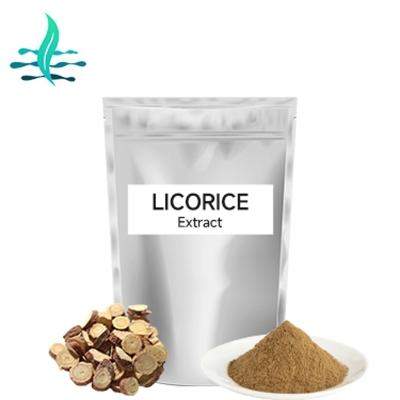-
Categories
-
Pharmaceutical Intermediates
-
Active Pharmaceutical Ingredients
-
Food Additives
- Industrial Coatings
- Agrochemicals
- Dyes and Pigments
- Surfactant
- Flavors and Fragrances
- Chemical Reagents
- Catalyst and Auxiliary
- Natural Products
- Inorganic Chemistry
-
Organic Chemistry
-
Biochemical Engineering
- Analytical Chemistry
- Cosmetic Ingredient
-
Pharmaceutical Intermediates
Promotion
ECHEMI Mall
Wholesale
Weekly Price
Exhibition
News
-
Trade Service
Recently, the network of red foodmate.
net/tag_2227.
html" class="zdbq" title="Beverage related food information" target="_blank">drink some milk shall vitality of forests foodmate.
net/tag_191.
html" class="zdbq" title="Tea beverage related food information" target="_blank">tea drinks because the product foodmate.
net/tag_133.
html" class="zdbq" title="Label related food information" target="_blank">label marked "0 foodmate.
net/tag_2361.
html" class="zdbq" title="Sucrose-related food information" target="_blank">sucrose - foodmate.
net/tag_4550.
html" class="zdbq" title="Low-fat related food information" target="_blank">fat fat" pushed to the cusp of the topic, said the Internet has forest vitality "overturned.
" So what is going on? What exactly does "0 sucrose" mean?
net/tag_2227.
html" class="zdbq" title="Beverage related food information" target="_blank">drink some milk shall vitality of forests foodmate.
net/tag_191.
html" class="zdbq" title="Tea beverage related food information" target="_blank">tea drinks because the product foodmate.
net/tag_133.
html" class="zdbq" title="Label related food information" target="_blank">label marked "0 foodmate.
net/tag_2361.
html" class="zdbq" title="Sucrose-related food information" target="_blank">sucrose - foodmate.
net/tag_4550.
html" class="zdbq" title="Low-fat related food information" target="_blank">fat fat" pushed to the cusp of the topic, said the Internet has forest vitality "overturned.
" So what is going on? What exactly does "0 sucrose" mean?
Classification of sugar
Carbohydrates, also known as carbohydrates, are generally composed of three elements: carbon, hydrogen and oxygen.
They are the most important nutrient elements for our human body.
They can be divided into three main categories, monosaccharides, disaccharides and polysaccharides.
Monosaccharides are the simplest sugars, including glucose, fructose and galactose; disaccharides can be hydrolyzed into two monosaccharides, including sucrose, lactose, maltose and trehalose; polysaccharides are often hydrolyzed to produce a series of intermediate products, and finally complete Hydrolysis to obtain monosaccharides, such as starch, cellulose and so on.
With the different types of sugar, the corresponding sweetness is also different.
The approximate order is fructose>sucrose>glucose>maltose>lactose.
Both monosaccharides and disaccharides can replenish energy for us and promote the formation of body fat.
They are the most important nutrient elements for our human body.
They can be divided into three main categories, monosaccharides, disaccharides and polysaccharides.
Monosaccharides are the simplest sugars, including glucose, fructose and galactose; disaccharides can be hydrolyzed into two monosaccharides, including sucrose, lactose, maltose and trehalose; polysaccharides are often hydrolyzed to produce a series of intermediate products, and finally complete Hydrolysis to obtain monosaccharides, such as starch, cellulose and so on.
With the different types of sugar, the corresponding sweetness is also different.
The approximate order is fructose>sucrose>glucose>maltose>lactose.
Both monosaccharides and disaccharides can replenish energy for us and promote the formation of body fat.
Fructose is a simple sugar that is easily absorbed by the body.
In fact, it is no stranger to us, because most fruits in our lives contain fructose, and the honey we drink every day also contains fructose.
In fact, it is no stranger to us, because most fruits in our lives contain fructose, and the honey we drink every day also contains fructose.
Sucrose is also the most common in our lives, such as: rock sugar, white granulated sugar, soft white sugar, brown sugar, brown sugar, brown sugar and other main ingredients are sucrose.
Lactose exists in the milk of all mammals in nature.
For example, milk and milk powder that are often drunk in life contain lactose.
For example, milk and milk powder that are often drunk in life contain lactose.
At present, sugar substitutes (sweeteners) are also used in the market to replace sucrose and white granulated sugar to provide sweetness.
In fact, sugar substitutes have been used for more than 100 years and are very common food additives.
Common sugar substitutes include aspartame, cyclamate, saccharin, acesulfame potassium, etc.
In the recent news event, the "sugar-free beverages" of Yuanqi Forest use sugar substitute erythritol to replace traditional sugars.
In fact, sugar substitutes have been used for more than 100 years and are very common food additives.
Common sugar substitutes include aspartame, cyclamate, saccharin, acesulfame potassium, etc.
In the recent news event, the "sugar-free beverages" of Yuanqi Forest use sugar substitute erythritol to replace traditional sugars.
The effect of sugar on the human body
sugar
While sugars (monosaccharides and disaccharides) provide people with energy, they also have the problems of fast digestion and absorption and high blood sugar response.
Excessive intake will increase the risk of dental caries and obesity.
Therefore, it is recommended that you do not consume too much.
my country’s dietary guidelines suggest that the energy provided by the daily intake of added sugars should not exceed 10% of the total energy, preferably not more than 5% of the total energy, or the intake of added sugars should not exceed 50 grams per day, preferably 25 grams.
Below grams.
Excessive intake will increase the risk of dental caries and obesity.
Therefore, it is recommended that you do not consume too much.
my country’s dietary guidelines suggest that the energy provided by the daily intake of added sugars should not exceed 10% of the total energy, preferably not more than 5% of the total energy, or the intake of added sugars should not exceed 50 grams per day, preferably 25 grams.
Below grams.
Sugar substitute
Sugar substitutes contain almost no energy.
While enjoying the sweetness, people don’t have to worry about a large amount of energy intake.
In addition, sugar substitutes can reduce the risk of dental caries due to sugar intake.
Many people worry that sweeteners are unsafe.
In fact, the evaluations of health organizations such as the World Health Organization and the Food Additives Codex Committee (JECFA) of the United Nations Food and Agriculture Organization, the US FDA, and the European Food Safety Authority EFSA all believe that these sweeteners are allowed to be used.
As long as it is used reasonably, it is safe and will not be harmful to the human body, so it can be eaten with confidence.
While enjoying the sweetness, people don’t have to worry about a large amount of energy intake.
In addition, sugar substitutes can reduce the risk of dental caries due to sugar intake.
Many people worry that sweeteners are unsafe.
In fact, the evaluations of health organizations such as the World Health Organization and the Food Additives Codex Committee (JECFA) of the United Nations Food and Agriculture Organization, the US FDA, and the European Food Safety Authority EFSA all believe that these sweeteners are allowed to be used.
As long as it is used reasonably, it is safe and will not be harmful to the human body, so it can be eaten with confidence.
What do "0 sucrose", "0 fat" and "low fat" mean?
According to GB 7718-2011 "National Food Safety Standard? " foodmate.
net/standard/sort/3/28222.
html" target="_blank">General Rules for the Labeling of Prepackaged Foods ", if a food label claims "no sugar" or "0 sugar", the sugar content per 100g or 100ml cannot exceed 0.
5g.
For low sugar, the sugar content should not exceed 5 grams per 100 grams or 100 milliliters.
The sugar here refers to various monosaccharides and disaccharides, whether they are naturally occurring or artificially added.
net/standard/sort/3/28222.
html" target="_blank">General Rules for the Labeling of Prepackaged Foods ", if a food label claims "no sugar" or "0 sugar", the sugar content per 100g or 100ml cannot exceed 0.
5g.
For low sugar, the sugar content should not exceed 5 grams per 100 grams or 100 milliliters.
The sugar here refers to various monosaccharides and disaccharides, whether they are naturally occurring or artificially added.
"0 sucrose" can be understood as a drink without adding sucrose as a sweetener during processing, but it does not mean that the drink does not contain glucose, maltose, fructose and other sugars.
In other words, "0 sugar" and "0 sucrose" indicate that the sugar content and sugar content are completely different, and there is a fundamental difference.
In other words, "0 sugar" and "0 sucrose" indicate that the sugar content and sugar content are completely different, and there is a fundamental difference.
"0 fat" refers to the amount of fat in the food, and it cannot be equated with health.
The impact of beverages on health depends on whether the food contains other ingredients such as energy.
Therefore, "0 fat" does not mean "0 calories".
It may also contain carbohydrates such as sucrose and fructose, which also contain energy.
The impact of beverages on health depends on whether the food contains other ingredients such as energy.
Therefore, "0 fat" does not mean "0 calories".
It may also contain carbohydrates such as sucrose and fructose, which also contain energy.
And "low-fat" refers to the low fat content in energy-saving nutrients.
Fat is one of the important nutrients necessary for humans to reduce growth.
Long-term inadequate intake can also damage health, and may lead to a lack of essential fatty acids and cause malnutrition and other problems.
Fat is one of the important nutrients necessary for humans to reduce growth.
Long-term inadequate intake can also damage health, and may lead to a lack of essential fatty acids and cause malnutrition and other problems.
How should I choose the beverage that suits me?
From a health perspective, drinking pure water without added sugar, such as cold boiled water and mineral water, is the best choice.
If you can drink pure water such as cold boiled water every day, and of course it is best to drink enough.
But if you want to drink sweetened beverages, for now, sugar-free sweetener beverages are still a better choice.
If you can drink pure water such as cold boiled water every day, and of course it is best to drink enough.
But if you want to drink sweetened beverages, for now, sugar-free sweetener beverages are still a better choice.
For those who need to control sugar, energy intake and weight management, on the basis of controlling total energy, choosing "0 sugar" or "sugar-free" beverages has certain benefits.
Patients with metabolic diseases such as diabetes and hyperlipidemia, pregnant women and other special populations, it is recommended to choose some decaffeinated, alcohol-free, and "low-sugar" beverages as much as possible.
(The content of this issue is guided by Liang Dong, associate researcher of the National Center for Food Safety Risk Assessment, and He Jiguo, associate professor of the School of Food Science and Nutritional Engineering, China Agricultural University.
)
)







